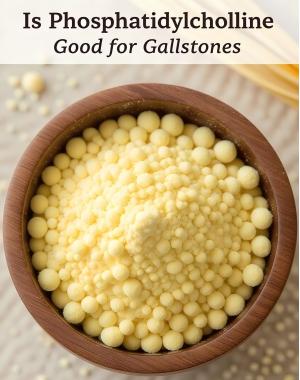Is phosphatidylcholine good for gallstones?

Phosphatidylcholine is a phospholipid that plays a vital role in maintaining healthy cell membranes and supporting the emulsification of fats in the digestive process. As a major component of bile, it contributes to the solubilization of cholesterol, which is a key factor in preventing the formation of gallstones.
Gallstones often develop when there is an imbalance in bile composition, particularly an excess of cholesterol relative to bile salts and phospholipids. Phosphatidylcholine is thought to influence this balance by binding to cholesterol and keeping it in a soluble state, reducing the likelihood of crystallization that leads to gallstone development.
Several studies have explored the potential benefits of phosphatidylcholine supplementation in gallbladder health. Experimental research indicates that higher levels of phosphatidylcholine in bile may help protect against cholesterol supersaturation, a primary driver of gallstone formation. In animal models, supplementation has been associated with improved bile composition and decreased gallstone incidence.
Beyond gallstone prevention, phosphatidylcholine has been studied for its broader effects on liver and digestive health. It supports bile fluidity, aids in fat metabolism, and contributes to the protection of hepatocytes. These functions indirectly support gallbladder function and may play a role in maintaining a healthier biliary system overall.
While phosphatidylcholine shows promise as a supportive nutrient for gallbladder and liver health, clinical research in humans remains limited. Its potential role in gallstone management is still under investigation, and individuals with gallstones or related conditions should seek medical advice before considering supplementation. The use of phosphatidylcholine as part of a comprehensive approach to digestive health continues to be an area of active scientific interest.
